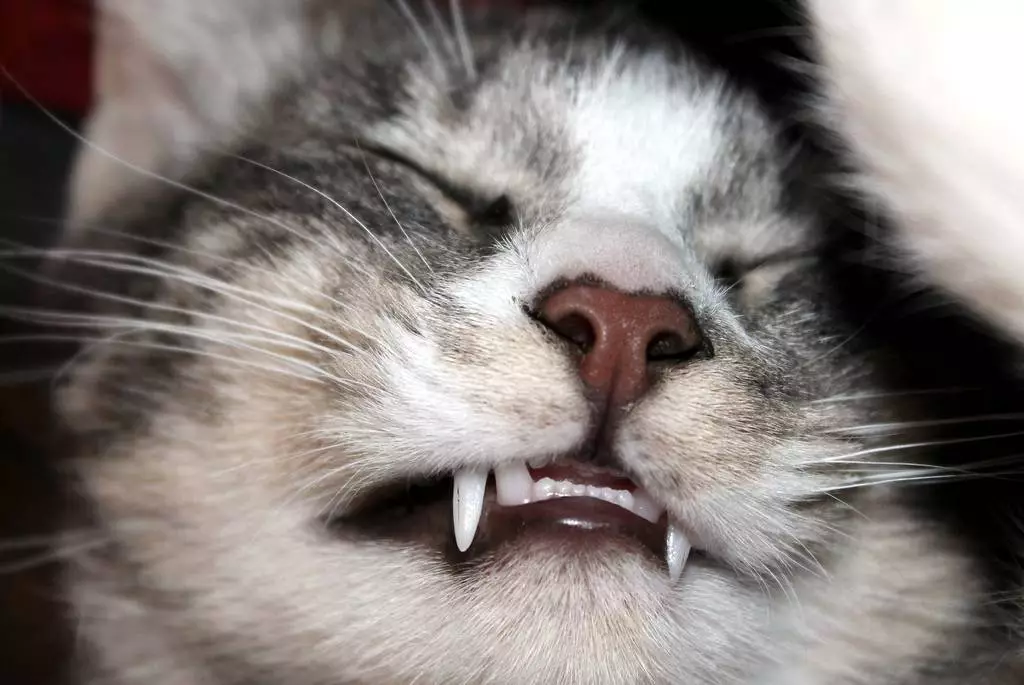Maintaining the dental health of your feline companion is a crucial yet often overlooked aspect of responsible pet ownership. As we observe Pet Dental Health Month, it’s essential to recognize that dental issues in cats can lead to severe health consequences if not addressed. According to veterinary professionals, dental disease is alarmingly common in cats, particularly those in their golden years. Thus, a proactive approach to oral hygiene can not only extend your cat’s life but also significantly enhance its quality.
The Hidden Dangers of Neglected Dental Health
Many cat owners think their pets are healthy if they seem energetic and playful. Yet, cats are notorious for masking symptoms of discomfort, especially when it comes to oral health. The earliest signs of dental disease can be subtle; you might notice your cat eating less, showing signs of discomfort when eating, or even pawing at their mouths. If you observe your cat distancing itself from food, suffering from bad breath, or exhibiting excessive drooling, these may be alarm bells that lead to more severe conditions.
It’s easy to underestimate the implications of poor dental health. Untreated dental diseases can result in severe periodontal infections, which may spread to vital organs, leading to grave health repercussions. Therefore, vigilance in monitoring your cat’s dental hygiene is not just important; it’s essential for their overall well-being.
Brushing: It’s Never Too Late to Start
One of the most effective ways to ensure your cat has a clean mouth is through regular brushing. While it’s best to introduce this habit when they’re kittens, adult cats can still learn to tolerate it. The process may not be easy, but the rewards are substantial.
Begin with cat-safe toothpaste; remember—human toothpaste is a no-go. Familiarize your pet with the taste and texture of the toothpaste by applying a small amount to your finger. Encourage your cat to lick it off—this creates a positive association. Progressively introduce the toothbrush, starting with small circular motions against the outer surface of their teeth. Throughout the process, it’s vital to reward your cat with treats and affection, reassuring them of their progress.
The key lies in consistency. While the initial attempts may provoke resistance, establishing a routine will help your cat associate tooth-brushing with safety and comfort. Just make sure to be gentle, and if you recognize signs of pain or discomfort, consult with your veterinarian.
Additional Strategies for Optimal Oral Health
Alongside brushing, there are several complementary strategies to enhance your cat’s dental hygiene. Regular check-ups should never be underestimated. A yearly dental examination during routine vet visits is crucial. Vets can identify possible issues before they evolve into serious health problems.
Consider integrating dental products specifically formulated for cats, such as pet-friendly mouthwash or dental gels. While these options may not replace brushing, they can serve as valuable tools. Dental gels work by loosening plaque, making it easier to remove through other means. Introduce these products gradually, using positive reinforcement to encourage their use.
Furthermore, the type of food you offer your cat can significantly impact their dental health. A diet comprising dry kibble, alongside occasional wet food, may help reduce plaque buildup through the mechanical action of chewing. Always remember to avoid sugary human treats, as these can exacerbate dental problems.
Know When to Seek Professional Help
Many cat owners hesitate to consult a veterinarian for dental issues until they’re noticeable, which can be a mistake. Regular assessments are paramount, especially if you suspect any dental disease. Vets can carry out thorough examinations and advise on necessary treatment options, which range from anti-inflammatory medications to professional scaling and polishing.
In some cases, severe dental disease may necessitate tooth extraction. This can sound concerning, but cats generally adapt remarkably well post-treatment.
The role of organizations like PDSA—providing essential veterinary care to pets whose owners may struggle financially—cannot be understated. The assistance received through such charities ensures that even the most vulnerable pets have the chance for proper dental health.
By making proactive dental care a regular part of your cat’s routine, you not only promote a happier life for your feline friend but also work toward preventing pain and health complications. Embracing these responsibilities is a testament to the love you have for your pet.


Leave a Reply